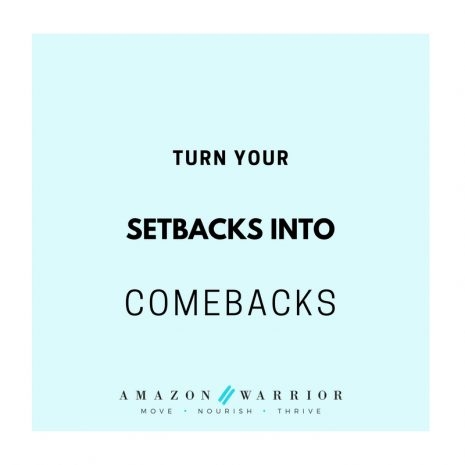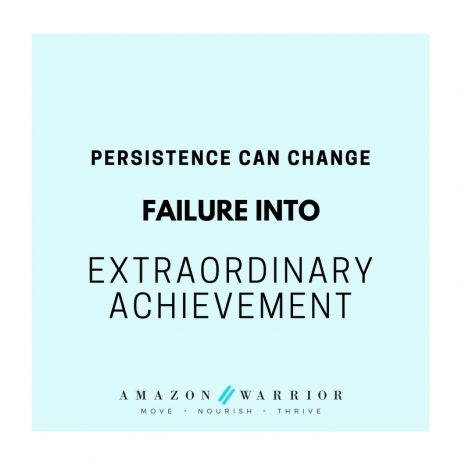If you work hard in the gym and do multiple weight sessions, boxing sessions or group fitness classes per week, or if you play sports, the chances are likely that you have encountered a physical injury….
When we do physical activity, we put our bodies under stress. We are continually asking our bodies to perform at a higher than usual cardio performance rate, or we ask it to lift a heavier weight than what we are used to (after all, this is how you get muscle growth). Whether you are a beginner in the gym, or a semi professional athlete, learning how to deal with an injury is an important part of a healthy balanced and active lifestyle.
Injuries can be devastating for people that like to be active and they can truly be debilitating, not just physically but more so mentally.
When I hit the gym for the first few years, I was injury free and had no problems at all. It wasn’t until I really learnt about fitness, and until I got really hooked, that I started to push my body through tougher, harder and longer workouts. At one point I was training weights up to twice per day plus did cardio and yoga stretching on top of that ….you can guess it…..it didn’t take long for injuries to come along.
Whether you are someone that trains once or twice a week, or whether you are training at an athletic level, it is essential that you take the time, the right precautions and right recovery strategies to nurse your injury.
This post is in no way advice. I am simply sharing my experience and hope that it may give you some helpful strategies that you can use next time you encounter and injury.
1. Take the blow, but be pragmatic
The first time I encountered a physical injury I didn’t really know how to deal with it… I was disappointed, sad, angry and felt extremely down as I was unable to train and hang out at my usual gym with my usual gym crew.
When you first discover pain swelling bruising or you know you have an injury take a deep breath and stand still…. Tune into your body and assess the situation, see where you’re at and find out what has caused the injury. Did you over train? Did you push it too hard? Should you not have done that extra set? Or did you simple slip? Or did you perhaps walk into a punch from your opponent?
Instead of going crazy with emotions, try this approach: Assess and analyse the situation and be pragmatic. Look at where you are, what you can and can’t do, and where you are going to next. Be smart, make a plan for yourself.
Really, an injury is not the end of the world. Have a look around you and see how many other people are ill, malnourished or haven’t got a roof above their head.
2. Get A Professional Diagnosis
I’ve heard many people tell me about their painful physical experiences they encountered whilst playing a sport or exercising in the gym. But then when you ask the question as to “what injury was it” or “what grade tear did you have”? They haven’t got an answer.
To me, my health is everything. This means that looking after it, and getting a professional assessment it essential once I’ve incurred an injury.
So when an accident happens, or when you feel you’ve done something “wrong” to your body, go to your GP, get a referral for an Xray or MRI or Ultrasound (depending on the injury), and get your injury assessed by professionals. This way, you KNOW what you’re up against and once you know your diagnosis, you can start working on a plan moving forward.
For example, when I had excruciating lower back pain, I got an MRI done which helped in the diagnosis of a double disc bulge of the L5 and S1 disc. Knowing this, I knew my plan moving forward. I knew what moves and activities to avoid, and what exercises and treatment strategies to implement instead.
3. Make A Realistic Plan – Adjust Your Activities
When I was training weights and yoga, I enjoyed doing a lot of overhead exercises such as overhead plate lunges, standing shoulder press and a lot of single arm kettlebell work. On top of that I was also enjoining a lot of handstands, until the injury hit…. you can guess it, massive inflammation in the shoulder wasn’t a nice feeling. This so called tendinopathy, also known as tendinitis or tendonitis, is a type of tendon disorder that results in pain, swelling, and impaired function. The pain is typically worse with movement.
I stopped and assessed the situation, I looked at my training plan and realised I was doing too much overhead load on the shoulders. I learnt from my injury, did physiotherapy rehab and I adjusted my training plan as to not to include too much of one thing (in this case, not too much overhead movement throughout the week). On top of that I also focused on strengthening my weaknesses and learnt to train the smaller muscle groups which help strengthen and stabilise the larger muscles with the proper contractions.
4. Get Professional Allied Health Treatments
When I first encountered my injuries I thought I was able to manage it all myself….. until the pain was too excruciating and I had nowhere else to go but to reach out for professional allied health services and lots of painkillers.
My GP prescribed some anti inflammatory tablets and referred me to a specialist physiotherapist. Although I was stubborn at first, I was very glad I visited the physiotherapist as within a couple of treatments my pain was halved, and my mobility was increased. Depending on the injury you may benefit from:
– Physiotherapy Treatment
– Acupuncture Treatment
– Chiropractic Treatment
– Hot & Cold Water Treatment
– Hyperbaric Oxygen Treatment
– Cryotherapy Treatment
On top of that I learned how to deal with this type of injury in the future, and most of all I learned which exercises to avoid, and which exercises to include in my future training routine.
As soon as you feel you have muscle tightness or a sprain, strain or other injury, you need to act!! DON’T WAIT!!!
Use foam rolling, yoga, massage and allied health professionals to get you feeling better and get you back on track.
5. Take Your Medication & Supplements
This one may sound obvious, but many people tend to forget this one.
Don’t forget to take your prescribed medication or supplements AS PRESCRIBED! Don’t just take the supplements when you are in pain, stay on top of it. Often, anti inflammatory tablets like celebrex, take a few days to kick in. So don’t stop, keep taking it as prescribed.
Here are my top supplements that have aided my recovery process:
- Celebrex for anti inflammatory purposes (used for both my disc bulge, torn AC ligament in my shoulder, and tendinopathy of the shoulder)
- Gelatin powder to help with good gut health whilst on medication, but also to help with supple joints and ligaments. Gelatin powder is basically ground up bones and hooves and other animal parts that are rich in gelatin, and help the body naturally recovery and stay supple. I use this supplement daily in my coffee, whether I have an injury or not. However when I have an injury, I’ll take a larger dosage.
- Painkillers where required to stay on top of the pain. However I only use painkillers if I really have to. Because I believe that feeling the pain is good because it reminds you of the injury but also limits you in moving. Whereas if you NUMB the area with painkillers, you may start to feel like your normal self again, and you may start to exercise too soon, or may start to do certain moves that you should not be doing yet. Remember, stick to your plan.
6. Get More Sleep
It’s easier said than done, but getting more sleep might actually aid your recovery. Your body is now in convalescence so it’s really time to look after yourself.
There are two key reasons quality sleep will aid your recovery:
Firstly, sleep is crucial for building muscle mass and banishing muscle soreness. During sleep, especially phase 3 non-REM, your body naturally releases the human growth hormone (HGH). This hormone stimulates growth and cell regeneration, and aids protein synthesis. Disruption to your sleeping patterns can alter the release of HGH, as generally it is the early stages of sleep when HGH is at its highest concentration in the body and when the majority of muscle growth and repair occurs. A lack of HGH production can negatively impact your health and fitness goals as your muscles are unable to repair after a workout and you may experience muscle soreness longer.
Secondly, sustaining a quality 7-9 hours (depending) of sleep a night allows your brain to fully recover and rest. All physical exercise requires the ability to process information quickly as well as mental alertness to best perform. Without quality sleep, your brain function is limited, slowing reaction times, lowering energy levels as well as increasing the risk of injury. Mental alertness is key in helping you get the most out of the time you put in at the gym. By achieving REM sleep for the recommended 1.5-2.5 hours a night allows your brain to fully replenish its energy stores, therefore maintaining a clear, focused and motivated mind.
 Get FREE access to my “Sleep Better Tonight” Ebook with 30 pages of information on sleep, including my secret sleep recipe and tips and tricks for a brilliant evening routine.
Get FREE access to my “Sleep Better Tonight” Ebook with 30 pages of information on sleep, including my secret sleep recipe and tips and tricks for a brilliant evening routine.
7. Improve Your Nutrition
Proper nutrition will help you reach optimal recovery, ensuring your body is refuelled, rehydrated and can rebuild. Nutrition unfortunately isn’t a one size fits all process but rather finding the right balance of carbohydrates, proteins and other nutrients depends on your fitness level, training duration and intensity, body weight, age and gender.
Maintaining a balanced diet of protein and carbohydrates is the best way to make sure your body has the energy to train and recover. Depleting your body’s glycogen stores can lead to fatigue, negatively impact your recovery process and overall feeling of wellbeing.
Proper nutrition not only helps maximise results in the gym, but also maximise recovery, allowing you to train harder once your injury is healed. By ensuring your body has the right building blocks to refuel, rebuild and rehydrate has numerous positive benefits including better recovery, less muscle soreness, increased muscle synthesis, and long term better performance. Finding the balance of carbohydrates, protein and other nutrients that works for you will amplify your recovery process.
Here’s what supplements I include in my daily nutrition:
- Two Scoops of Switch Superfood to ensure I get my daily greens and omegas
- Colloidal Minerals to ensure I get my daily mineral intake
- At least three serves of protein to help maintain muscle, and help me feel full and help the body recover
- BCAAs whilst I’m out on a walk
- A healthy breakfast with oats, protein and Switch Superfood – a nutritious lunch with a serve or
8. Change Things Up – Redirect Your Energy
Even though it may seem like the end of the world when you’re injured, there is still a ways you can get physically active. If for example, you have a shoulder injury you would still be able to train legs, or to get active outdoors such as a nice walk or hike with friends.
When all of a sudden you have a bit of spare time because you can’t train as much, you may be able to shift things from a heavy weights workout to now incorporate more
yoga, stretching, or mobility work to aid recovery and to still stay active and mobile.
If you are going to be out of action for a few weeks due to surgery or other circumstances, there are still ways you can get involved with physical activity or movement. When I was unable to train for a two months due to
major sepsis and being in a coma, I shifted my “training energy” and started to learn about other areas of movement and physical activity. I actually really enjoyed adjusting and reviewing my training plan which then set me up for success once I was allowed to train again.
So instead of being down and depressed about not being able to train shift your energy to positive thoughts and put your energy into other things that you are passionate about, or other things that you can learn about. You may notice that there are more recipes on this blog at times which may mean I’m currently nursing an injury which gives me plenty time to cook hahah, see, there’s always a silver lining. Things you can shift your energy towards:
– Practice Gratitude
– Try Meditation
– Try Journalling
– Read a New Book
– Learn About Wim Hoff Breathing Technique
– Listen to Motivational Talks From For Example David Goggins, Ben Greenfield, Fearless Motivation or learn about Biohacking and health from Dave Asprey.
9. Stay Connected And Seek Social Support
If you are a regular gym goer or attend a regular class and all of a sudden you’re injured you may start to feel very lonely, sad and isolated. Avoid this by simply hanging out with your gym friends as social connection will help you get through your injury. When I am injured I still go to some boxing sessions because I love seeing my training mates excel plus it helps me bust boredom. It’s all about that connection 🙂
Final Thoughts
There’s no way around it, injuries suck. Just remember that it’s about the way you respond to them that will determine the outcome. Be kind to yourself and shift your energy towards other positive things, keep that social connection and look after yourself. Get enough sleep and nourish your mind body and spirit.
I hope this post inspired you and gave you a little bit of a pep talk if you are currently nursing an injury. If you have a friend or family member that may benefit from this post don’t forget to share it. I’d love to hear your thoughts on how you deal with an injury and how you deal with the set back in the comments below.
Follow me: @AmazonWarriorAU

Liked this post? Share it:

 Get FREE access to my “Sleep Better Tonight” Ebook with 30 pages of information on sleep, including my secret sleep recipe and tips and tricks for a brilliant evening routine.
Get FREE access to my “Sleep Better Tonight” Ebook with 30 pages of information on sleep, including my secret sleep recipe and tips and tricks for a brilliant evening routine.





You must be logged in to post a comment.